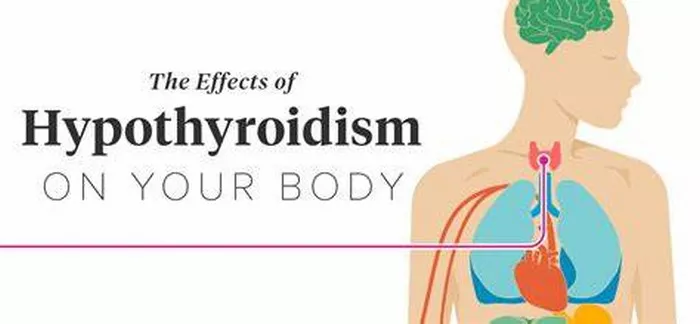Hypothyroidism, a condition characterized by an underactive thyroid gland, affects millions of people worldwide. The thyroid gland produces hormones that regulate various bodily functions, including metabolism, heart rate, and body temperature. When the thyroid is not producing enough hormones, it can lead to a variety of health issues, including elevated cholesterol levels. This article explores the relationship between hypothyroidism and high cholesterol, examining the mechanisms involved and the implications for patient management.
Understanding Hypothyroidism
Hypothyroidism occurs when the thyroid gland fails to produce sufficient amounts of thyroid hormones, primarily thyroxine (T4) and triiodothyronine (T3). This deficiency can result from several factors, including autoimmune diseases (like Hashimoto’s thyroiditis), surgical removal of the thyroid, radiation therapy, or certain medications. Common symptoms of hypothyroidism include:
- Fatigue
- Weight gain
- Cold intolerance
- skin
- Hair loss
- Constipation
- Depression
Diagnosis typically involves measuring serum thyroid-stimulating hormone (TSH) and T4 levels. High TSH and low T4 levels indicate hypothyroidism.
The Connection Between Hypothyroidism And Cholesterol
1. Lipid Metabolism
Thyroid hormones play a crucial role in lipid metabolism. They promote the breakdown of cholesterol and stimulate the conversion of cholesterol to bile acids in the liver. When thyroid hormone levels are low, this process is impaired, leading to an accumulation of cholesterol in the bloodstream.
SEE ALSO: Which Is Safer, Atorvastatin or Rosuvastatin?
Mechanisms Involved
Reduced LDL Receptors: Thyroid hormones regulate the expression of low-density lipoprotein (LDL) receptors on liver cells.
These receptors are responsible for removing LDL cholesterol from the bloodstream. In hypothyroidism, the number of LDL receptors decreases, leading to higher LDL cholesterol levels.
Altered Lipoprotein Composition: Hypothyroidism also affects the composition of lipoproteins. Individuals with hypothyroidism may have an increase in small, dense LDL particles, which are more atherogenic than larger, buoyant particles. This shift in lipoprotein profile increases the risk of cardiovascular diseases.
Decreased Bile Acid Synthesis: The synthesis of bile acids from cholesterol is reduced in hypothyroid patients, contributing to higher cholesterol levels in the serum.
2. Research Findings
Several studies have confirmed the link between hypothyroidism and hyperlipidemia (high cholesterol levels). A review of literature indicates that:
Total Cholesterol Levels: Studies show that patients with untreated hypothyroidism have significantly higher total cholesterol levels compared to those with normal thyroid function. This elevation can be as much as 20-60 mg/dL higher in hypothyroid patients.
LDL Cholesterol: Increased LDL cholesterol levels are particularly pronounced in individuals with severe hypothyroidism.
Research has shown that LDL levels can rise by an average of 30-50% in these patients.
Triglycerides: Hypothyroid patients often exhibit elevated triglyceride levels as well, further compounding their cardiovascular risk.
3. Risk Factors for Cardiovascular Disease
The relationship between high cholesterol and cardiovascular disease (CVD) is well-established. Elevated LDL cholesterol levels contribute to the development of atherosclerosis, a condition characterized by the buildup of fatty deposits in arterial walls. This can lead to heart attacks, strokes, and other cardiovascular complications.
Individuals with hypothyroidism are at an increased risk of developing CVD, especially if they have additional risk factors such as:
- Obesity
- Hypertension
- Diabetes
- Smoking
Addressing high cholesterol levels in hypothyroid patients is essential for reducing cardiovascular risk.
Management of Cholesterol in Hypothyroidism
1. Thyroid Hormone Replacement Therapy
The primary treatment for hypothyroidism is thyroid hormone replacement therapy, typically with levothyroxine (synthetic T4). By restoring normal thyroid hormone levels, patients can experience improvements in lipid profiles.
Expected Outcomes
Reduction in Cholesterol Levels: Research indicates that thyroid hormone replacement can lead to significant reductions in total cholesterol and LDL cholesterol levels, often within weeks to months of initiating therapy.
Monitoring: Regular monitoring of thyroid function and lipid levels is essential to ensure that treatment is effective and that cholesterol levels are within the desired range.
2. Lifestyle Modifications
In addition to thyroid hormone replacement, lifestyle changes can help manage cholesterol levels in hypothyroid patients:
Diet: A heart-healthy diet that emphasizes fruits, vegetables, whole grains, lean proteins, and healthy fats can support lipid management.
Reducing saturated fat and cholesterol intake is particularly beneficial.
Physical Activity: Regular exercise can help lower LDL cholesterol and raise high-density lipoprotein (HDL) cholesterol. Aim for at least 150 minutes of moderate-intensity exercise each week.
Weight Management: Achieving and maintaining a healthy weight can positively impact cholesterol levels and overall cardiovascular health.
3. Medications for Dyslipidemia
In some cases, patients with hypothyroidism may require medications to manage their cholesterol levels, even after achieving adequate thyroid hormone replacement. Statins are commonly prescribed to lower LDL cholesterol and reduce cardiovascular risk.
Conclusion
Hypothyroidism can indeed lead to high cholesterol levels due to its effects on lipid metabolism. The mechanisms involve decreased LDL receptor expression, altered lipoprotein profiles, and reduced bile acid synthesis. Recognizing the connection between hypothyroidism and hyperlipidemia is essential for effective patient management.
Related topics:


